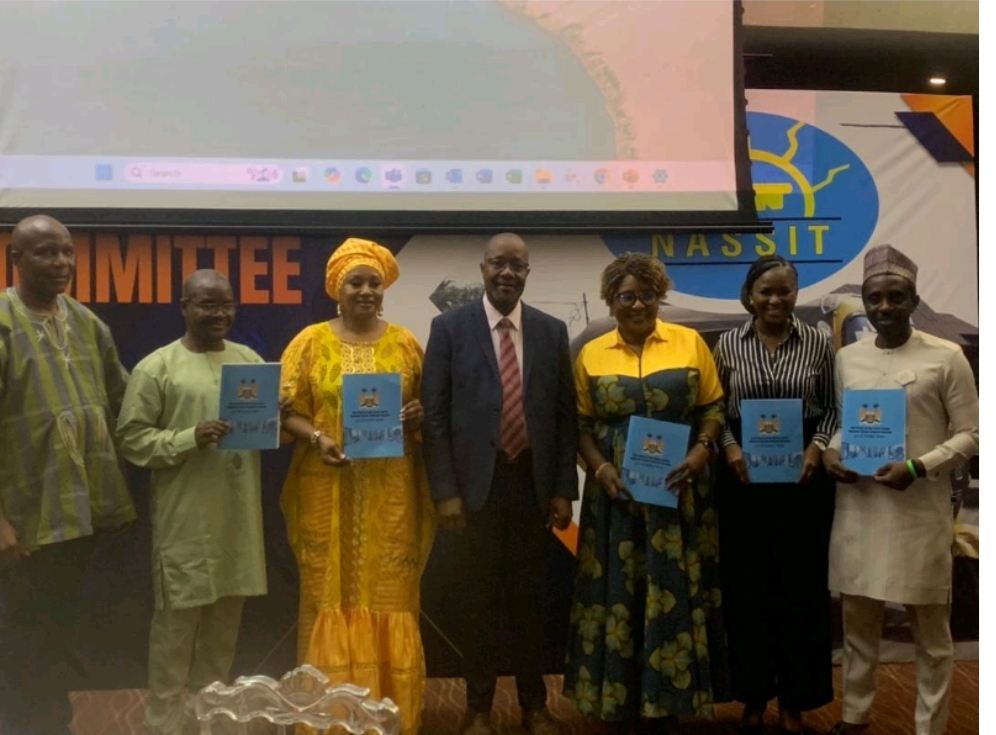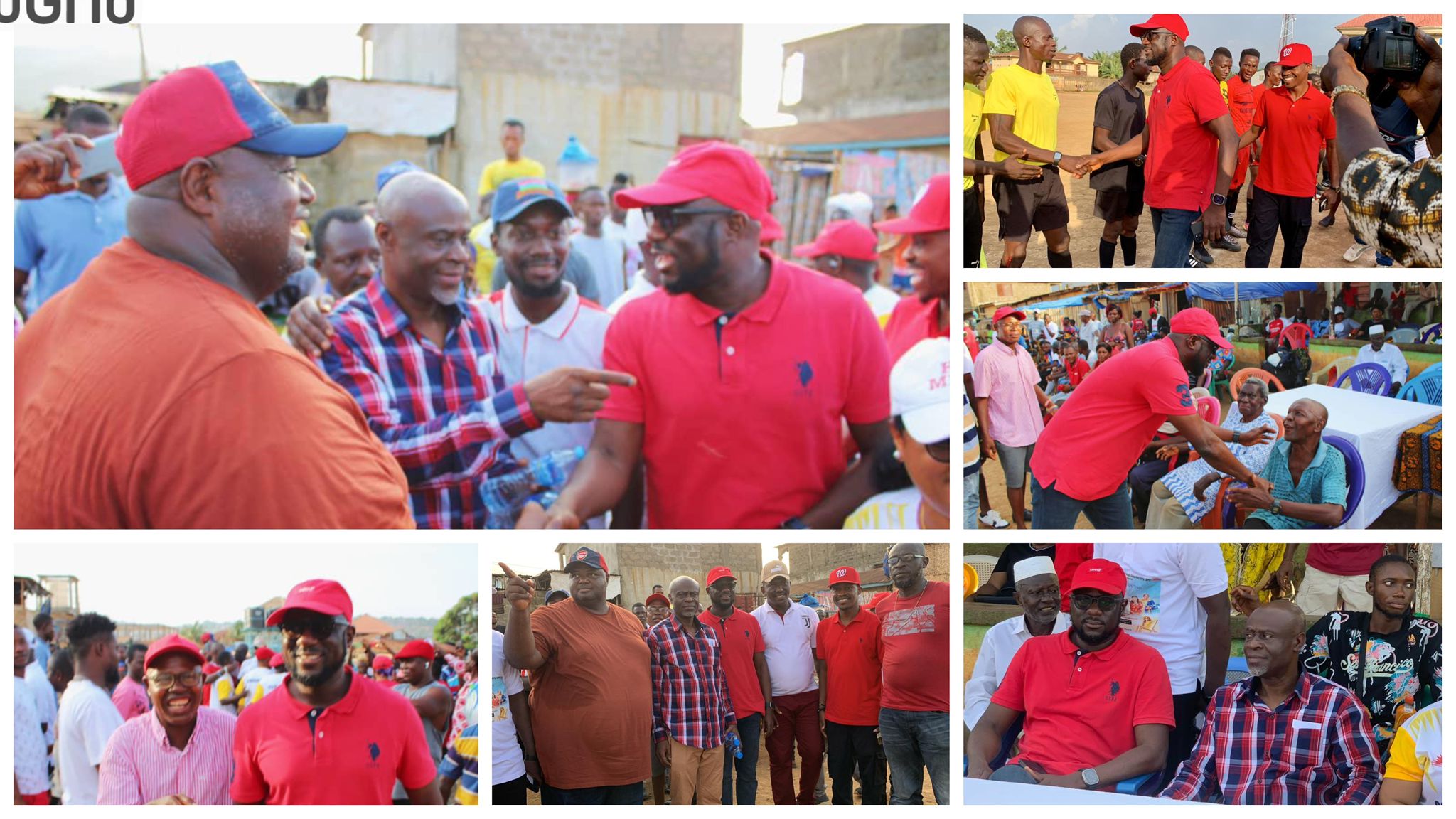
By Abdul Razack Gbla
A draft policy that could extend pension benefits to millions of Sierra Leoneans working in the informal economy was formally presented to the Informal Sector Steering Committee during a high-level meeting held Tuesday morning, May 13, 2025, at the Radisson Blu Mammy Yoko Hotel in Freetown.
The policy, developed by the Informal Sector Technical Committee, proposes the establishment of a national pension scheme for workers outside the formal employment structure—such as traders, market women, drivers, artisans, and domestic workers—who make up more than 80% of the country’s labour force.
Minister of Employment, Labour and Social Security, Honourable Mohamed Rahman Swaray, described the moment as “a significant milestone” in the government’s efforts to promote decent work, economic inclusion, and social protection.“Our role as members of this Steering Committee is not just to endorse a document, but to champion its implementation and advocate for the rights and needs of informal sector workers,” the minister said in his opening address.
He recalled that during the last Steering Committee meeting in September 2024, the International Labour Organization (ILO) presented the Inception Actuarial Valuation Report, which laid the groundwork for the current draft policy.

According to the minister, government initiatives such as the Free Quality Education Programme, the National Social Protection Policy, and the Medium-Term National Development Plan have already begun to support vulnerable groups, including informal workers and their families.
The draft policy aims to institutionalize long-overdue protections for a vital sector that has historically operated outside the formal social security framework.Edwin M. Kamara, Deputy Director-General of Operations at NASSIT and Chairman of the Informal Sector Technical Committee, commended the collaborative efforts of various ministries and agencies in developing the draft without external consultancy support.
“This is a testament to the depth of expertise, dedication, and ownership within our team,” Kamara said. “Each member of the Technical Committee brought unique insights that helped shape a policy grounded in the practical realities of the informal sector.
”Mr Kamara introduced the committee members and praised them for their commitment to a policy that seeks to bridge the gap between informal labour and national development frameworks.
Also addressing the gathering was the Director General of NASSIT, who emphasized the economic and social importance of the initiative.“The informal sector is not just a segment of our economy—it is its backbone,” he stated. “Yet, despite their contributions, informal workers remain vulnerable to risks and excluded from protections available to their counterparts in the formal sector.
”He called on Steering Committee members to back the proposed scheme with institutional commitment, data sharing, and alignment with national policies. “You are not just advisors—you are enablers of transformation,” he said.
The Director General further highlighted that this effort aligns with President Julius Maada Bio’s development agenda under the Medium-Term National Development Plan, which prioritizes the formalisation of the informal sector as a strategic objective.Minister of Employment, Labour and Social Security, Honourable Mohamed Rahman Swaray, formally endorsed the draft proposal, joining the Steering Committee in validating the establishment of the new “Salone Informal Sector Pension Scheme.”

The endorsement includes key resolutions: that the Ministry of Employment and NASSIT proceed with developing legislation to establish the scheme, that its official name be the Salone Informal Sector Pension Scheme, and that its slogan be “Fo Di Bambai”—a Krio phrase meaning “for the future.
” The Steering Committee also mandated the Technical Team to conduct a nationwide validation exercise to ensure broad-based support and inclusivity in the final policy framework.As discussions move toward legislation and implementation, the Steering Committee is expected to play a pivotal role in ensuring the draft policy evolves into a fully functioning social insurance scheme.
Stakeholders present included representatives from the ILO, World Bank, UNDP, relevant government ministries, and civil society organisations.The meeting concluded with a unified call to action—urging all institutions to support the next steps and ensure that the final policy delivers real change for Sierra Leone’s informal workforce.
“This is our opportunity to build a social protection system that works for everyone—from the trader in Kambia to the pepper seller in Kabala,” the Director General said. “Let us make this a shared national legacy.”



